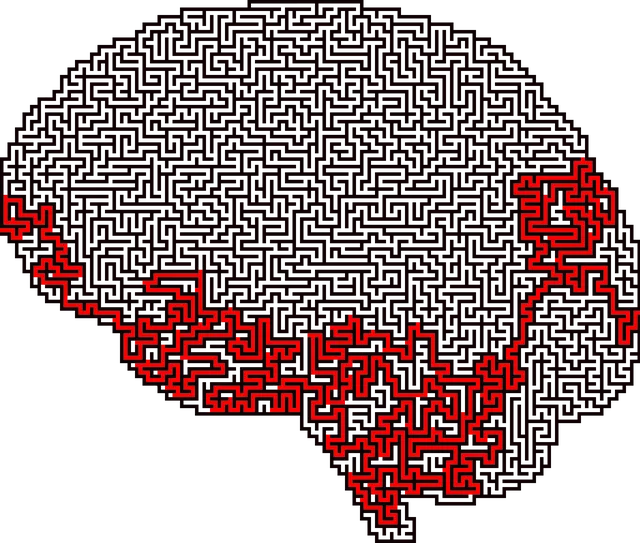The Kaiser Permanente mental health facility in Broomfield prioritizes cultural competency training to offer tailored, inclusive care for diverse patients. Through comprehensive programs addressing language barriers, emotional intelligence, and risk assessment, the facility enhances patient outcomes and creates a supportive environment. Regular evaluations, based on community feedback and data analysis, ensure continuous improvement in services aligned with the unique needs of Broomfield's diverse communities.
Cultural competency training is essential in modern healthcare, ensuring providers can deliver inclusive, effective care. This article explores this critical aspect of patient interaction, highlighting strategies for improvement. We delve into the significance of cultural sensitivity, using Kaiser Permanente’s mental health facility in Broomfield as a case study—a leader in diverse patient interactions. Additionally, we discuss barriers to communication and evidence-based training approaches, offering insights on evaluation methods for continuous improvement.
- Understanding Cultural Competency in Healthcare: A Necessity in Modern Practice
- Kaiser Permanente Broomfield: A Mental Health Facility at the Forefront of Cultural Sensitivity
- Identifying and Overcoming Barriers to Effective Communication
- Training Approaches: Equipping Staff for Diverse Patient Interactions
- Measuring Success: Evaluation and Continuous Improvement Strategies
Understanding Cultural Competency in Healthcare: A Necessity in Modern Practice

In today’s diverse healthcare landscape, cultural competency is no longer an optional consideration but a necessity for all providers, especially at mental health facilities like Kaiser Permanente’s Broomfield location. This approach recognizes and respects the unique cultural backgrounds, beliefs, and values of patients, ensuring they receive care that aligns with their identities and experiences. For instance, understanding cultural nuances related to mental health can significantly impact treatment outcomes. What may be considered a normal coping mechanism in one culture could be viewed as disruptive or offensive in another.
At Kaiser Permanente Broomfield, training in cultural competency is integral to preparing mental health professionals for the challenges they might encounter. This includes equipping them with tools and strategies to navigate complex issues such as trauma support services and stress reduction methods, which often vary across cultures. Moreover, risk management planning becomes more effective when professionals can anticipate and address potential cultural barriers, thereby ensuring a safer and more supportive environment for all patients, especially those from diverse ethnic, racial, or social backgrounds.
Kaiser Permanente Broomfield: A Mental Health Facility at the Forefront of Cultural Sensitivity

Kaiser Permanente Broomfield stands as a beacon of mental health care, renowned for its commitment to cultural competency and sensitivity. This facility recognizes that effective treatment requires an understanding of diverse backgrounds, beliefs, and experiences. As such, they have pioneered innovative programs tailored to address the unique needs of various communities.
Within Kaiser Permanente’s comprehensive services, emotional regulation and coping skills development are central to their approach. They offer specialized training and support to help individuals manage stress, process traumatic experiences, and cultivate resilience. Moreover, social skills training is integrated into treatment plans, fostering a sense of belonging and connection. By prioritizing these aspects, the facility ensures that patients from all walks of life receive care that respects their cultural identities and promotes their overall well-being.
Identifying and Overcoming Barriers to Effective Communication

Effective communication is a cornerstone of quality healthcare, especially at Kaiser Permanente mental health facilities like the one in Broomfield. However, barriers can arise due to cultural differences, language gaps, or personal biases, hindering the patient-provider relationship. For instance, mental health professionals must consider emotional intelligence and cultural competency to tailor their approach, ensuring patients feel heard and understood.
At the Kaiser Permanente Broomfield mental health facility, efforts are made to address these barriers through workshops focused on stress management and emotional intelligence. These initiatives equip staff with tools for risk assessment, helping them navigate complex situations sensitively. By fostering an environment where open communication is encouraged, the facility aims to improve patient outcomes and create a more inclusive space for all individuals seeking mental health services.
Training Approaches: Equipping Staff for Diverse Patient Interactions

At Kaiser Permanente’s mental health facility in Broomfield, training approaches are designed to equip staff with the skills necessary for effective and compassionate interactions with a diverse patient population. Beyond technical knowledge, these programs focus on fostering empathy and cultural competency. Staff learn empathy building strategies that allow them to connect deeply with patients from different backgrounds, promoting understanding and trust. By integrating mental health policy analysis and advocacy into training, the facility ensures staff are equipped not only to provide quality care but also to address systemic issues affecting patient outcomes, including efforts to reduce the stigma surrounding mental illness.
Through interactive workshops and real-life scenario role-plays, personnel gain experience navigating cultural nuances, challenging stereotypes, and tailoring their approaches to meet individual patient needs. This holistic training approach prepares staff to offer respectful, inclusive care that respects and celebrates diversity, ultimately enhancing patient satisfaction and outcomes at the Kaiser Permanente mental health facility in Broomfield.
Measuring Success: Evaluation and Continuous Improvement Strategies

Evaluating the effectiveness of cultural competency training is a vital step towards ensuring positive changes within healthcare settings. At Kaiser Permanente’s mental health facility in Broomfield, success is measured through comprehensive evaluation strategies that go beyond basic knowledge assessments. This involves gathering feedback from both participants and recipient communities to gauge the impact on clinical practice and patient outcomes. By collecting qualitative and quantitative data, the facility can identify areas of improvement and make necessary adjustments to their Mental Health Education Programs Design.
Emotional intelligence and effective communication strategies are key elements assessed during this process. The training aims to enhance these skills among healthcare providers, fostering a more empathetic and culturally sensitive environment. Through regular evaluations, the Broomfield facility can track progress, share best practices, and continuously improve its approach, ultimately benefiting patients and ensuring high-quality mental health services.
Healthcare provider cultural competency training is no longer a nice-to-have, but an absolute necessity. As diverse patient populations become the norm, facilities like Kaiser Permanente’s mental health center in Broomfield are setting benchmarks for excellence. By identifying and overcoming communication barriers, implementing effective training approaches, and continuously measuring success, healthcare organizations can better serve their communities. This approach ensures that every patient receives respectful, culturally sensitive care, fostering a more inclusive and healing environment.






